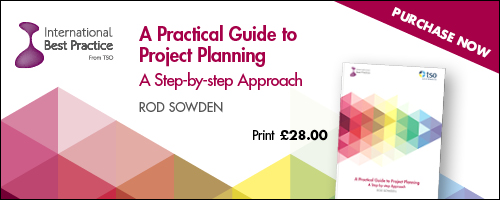In general, lessons learned are rarely learned.  Research and general knowledge about what causes programme and project failure has abounded for years, yet the same things keep happening, so what can we do to help.
Research and general knowledge about what causes programme and project failure has abounded for years, yet the same things keep happening, so what can we do to help.
As an example of this problem, for the last 20 years in the UK, the world of best practice (originated by the OGC) illustrates the issue. We wrote Managing Successful Programmes (MSP®), and it was written on the assumption that audiences already had experience of programme management, understood programme management and wanted to improve. The reality is that people read the book as part of a course and never look at it again.
The work of P3M3® has shown that although the knowledge has been absorbed temporarily for the examination, it is not sufficiently understood to enable deployment in the real world as the courses are attended by inexperienced individuals unable or unauthorised to deploy the knowledge they have in the real world. For more on this, click here






